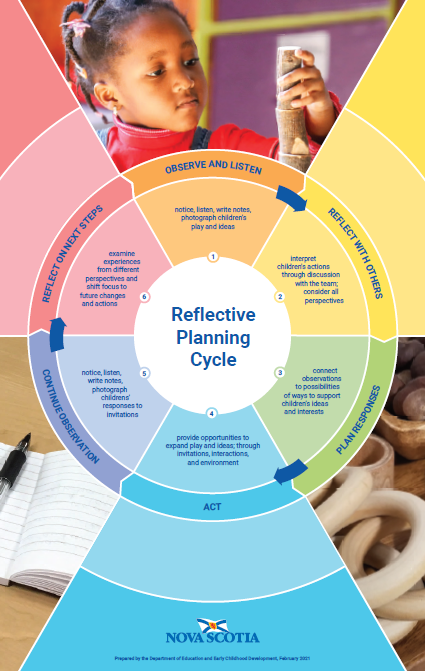ChildCare Curriculum
A thorough curriculum for daycare includes a wholistic perspective on child development, incorporating: Play-Based Learning: (Zigler et al., 2006), play is the cornerstone of early childhood education because it gives kids a dynamic and interesting approach to learn and explore the world around them. Play-based activities provide kids the chance to explore, be creative, and solve problems. This allows them to acquire important skills while having a good time. Children can learn by practical experiences and interactions with their peers in a curriculum that emphasizes play-based learning, which encourages active participation and in-depth comprehension of subjects.
Early Literacy and Numeracy: Highlights by (Heckman, 2006)that the acquisition of basic literacy and numeracy abilities is the cornerstone for future academic achievement. Promoting language development, phonemic awareness, early reading, and numeracy concepts in children's play is essential to preparing them for the rigours of formal education. A developmentally appropriate curriculum guarantees that kids learn the fundamentals of reading and numeracy while cultivating a love of learning by providing engaging and interactive experiences that meet their developmental stage.
Social-Emotional Learning (SEL): ( Leseman, 2009) asserts that SEL components are essential in fostering children's emotional intelligence, interpersonal skills, and self-awareness. Engaging in activities that prioritize empathy, self-regulation, and conflict resolution gives kids the skills they need to succeed in social situations and build lasting relationships. Childcare programs foster children's overall development and establish the groundwork for their social and emotional health by including SEL into the curriculum.
Physical Development: According to (Haskins & Barnett, 2010), structured activities like dance, outdoor play, and manipulative tasks are essential to promoting the development of gross and fine motor abilities. Children who receive a curriculum that places a high priority on physical development grow stronger, more coordinated, and more conscious of their surroundings and body. Furthermore, encouraging physical activity improves kids' general health and wellbeing and lays the groundwork for lifelong good habits and active lifestyles.
Cultural Competence and variety: (Pianta et al., 2009), acknowledging and valuing cultural variety fosters an inclusive environment where kids feel appreciated and valued. Childcare programs encourage empathy, tolerance, and understanding in addition to promoting global citizenship by exposing kids to a range of cultures, practices, and points of view. Adopting cultural competency enhances children's educational opportunities and equips them to prosper in a world that is becoming more varied by the day.
Parental Involvement: (Zigler et al., 2006) In order to maximize children's learning and development, collaboration between parents and educators is crucial (Zigler et al., 2006). Continuity between home and daycare facilities is fostered by a curriculum that promotes parental involvement through family get-togethers, workshops, and regular communication channels. Childcare programs foster a supportive partnership that improves children's overall learning outcomes and experiences by actively including parents in their kids' education.

Conclusion:
Conclusively, childcare facilities are essential establishments that significantly impact the emotional, social, and cognitive development of young children along their developmental paths. These early childhood education facilities are like safe havens where kids can grow up feeling loved, given lots of chances to learn, and given careful attention—all of which provide the foundation for their future academic success and personal growth. Beyond just watching over children, high-quality daycare centres actively encourage the growth of critical thinking, creativity, and curiosity. This builds a strong foundation that enables kids to face the challenges of life with resilience and confidence.
In addition, children's socio-emotional competences are shaped by the social dynamics that are fostered in daycare centres. These dynamics not only help children develop their interpersonal skills but also foster empathy, cooperation, and respect for variety. In addition to improving children's lives, these social relationships made in early childhood institutions also strengthen the bonds that unite diverse and caring communities. As long as lawmakers and educators maintain their financing priorities for early childhood education and care, it will be critical to maintain high standards of quality, encourage accessibility, and acknowledge the critical role that childcare providers play in forming the minds and bodies of future generations.
In fact, by supporting our youngest members' development and well-being, we not only guarantee their success on an individual basis but also strengthen the general prosperity and resilience of society. Beyond its practical use, childcare has come to represent the cornerstone of social progress, preparing the next generation of leaders, innovators, and change-makers who will guide society toward a more equitable, just, and sustainable future. As a result, providing for and encouraging childcare services now not only improves the lives of individual kids but also sows the seeds for a more promising future for all societal members, leaving a legacy of opportunity, inclusivity, and empowerment for future generations.